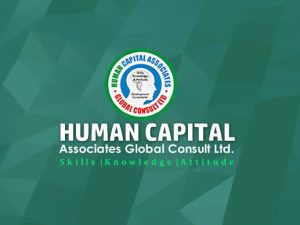Workshop on Fluid Power Systems: Hydraulics and Pneumatics
January 8 – 12, 2024, 1st Run: Lagos & Abuja
July 15 – 19, 2024, 2nd Run: Lagos & Port Harcourt
For Tutor -Led Class: 9am – 4:30pm
Workshop fee: N300, 000 per Participant
For online: Delivery via Zoom
Online course fee: N250, 000 per Participant
Available for In-plant Training
Program Overview:
Fluid power systems (hydraulics and pneumatics) offer an alternate means of controlling industrial systems without a large number of electrical components. Forces can be quickly transmitted over considerable distances efficiently with little loss and large components can be controlled with very small forces, and with smooth, uniform action.
This course provides participants with the knowledge to construct and operate all the individual components essential for the optimum operation of the overall fluid power system. It includes the supply of fluid (gas or liquid), the use of fluid powered control cylinders, control valves and motors as well as the tools associated with the maintenance and repair of fluid power systems.
For Whom:
This course is designed for professionals involved with, and responsible for, the operation of fluid power systems including maintenance managers, maintenance supervisors, engineers, project managers, technicians and plant operators.
Learning Objectives:
At the end of the program, participants will be able to:
- describe the development and applications of modern fluid power systems (hydraulics and pneumatics) including the different types of fluids and the three general classes of piping;
- apply Pascal’s law to the design and operation of fluid power systems and circuits;
- outline the types of seals and components in fluid power systems and their respective benefits;
- operate a fluid power system circuit, given a system schematic; and
- prevent, identify and troubleshoot common failures of fluid power systems.
Course Outline:
Day 1: Pneumatic theory
- Advantages of fluid power
- Transmission of forces through fluids
- Pascal’s law
- Force and pressure
- Computing force, pressure and area
- Multiplication of forces
- Differential areas
- Compressibility and expansion of gases (Boyle’s law/ Charles’s law)
- Work and energy
- Fluid flow
- Volume and velocity of flow
- Steady and unsteady flow
- Streamline and turbulent flow
- Factors involved in flow
- Relationship of force, pressure, and head
- Static and dynamic factors
- Bernoulli’s principle
- Minimizing friction
- Advantages of pneumatics
- Pneumatic applications and symbols
Day 2: Pneumatic components
- Purification equipment
- Preliminary filtering – dry-type/wet-type filters
- Moisture removal and drying
- Additional filtering
- Filtering contaminants
- Filter classes and ratings
- Surface/depth filters
- Lubrication of heavy/fine lubricators
- Pneumatic cylinders
- Single-acting/ Double-acting cylinders
- Two-piston cylinder
- Cushioning devices
- Pneumatic control valves
- Control valve elements
- Two/three/four/five-way valves
- Manually operated valves
- Pilot and solenoid valves
- Air receivers
- Pneumatic motors
- Motor classification
- Pneumatic motor construction
- Pneumatic tools
Day 3: Pneumatic circuits
- Basic pneumatic system
- Simple circuits
- Timing circuits
- Safety circuits
- Pneumatic circuits
- Determining causes of failures
- Understanding the system
- Troubleshooting procedures
- Checking air supply systems
- Troubleshooting the actuator
- Checking the control valve
- Checking a control valve actuator
- Checking sequence valves
- Checking master control valves
- Making final adjustments
- Pneumatic system troubleshooting chart
Day 4: Hydraulic theory & Hydraulic components
- Hydraulic development
- Hydraulic applications
- Advantages of hydraulics
- Physics of hydraulics
- Hydraulics’ pressure
- Pascal’s law
- Fluid flow
- Hydraulic symbols
- Hydraulic liquids
- Hydraulics’ properties
- Viscosity and viscosity index
- Lubricating power
- Types of hydraulic liquids (water/petroleum/synthetic)
- Piping and connectors
- Rigid pipe
- Semi-rigid (tubing)
- Flared connectors
- Bite-type connectors
- Sealing devices
- Materials (synthetic rubber/cork/metal)
- Types of seals
- cWipers and backup washers
- Hydraulic reservoirs
- Accumulators
- Weight-loaded type
- Spring-loaded type
- Air or gas-type
- Hydraulic pumps
- Rotary pumps
- Reciprocating pumps
- Control valves
- Directional control valves
- Flow control valves
- Solenoid operated valves
- Cylinders/actuators
- Ram-type cylinders
- Piston-type cylinders
Day 5: Hydraulic circuits
- Basic hydraulic system
- Hydraulic circuits
- Common causes of failure
- Dirt
- Heat
- Misapplication
- Improper fluids
- Maintenance
- Improper design or installation
Training Methodology
Lectures, discussions, exercises, case studies, audio-visual aids will be used to reinforce these teaching/learning methods.
Related Courses






